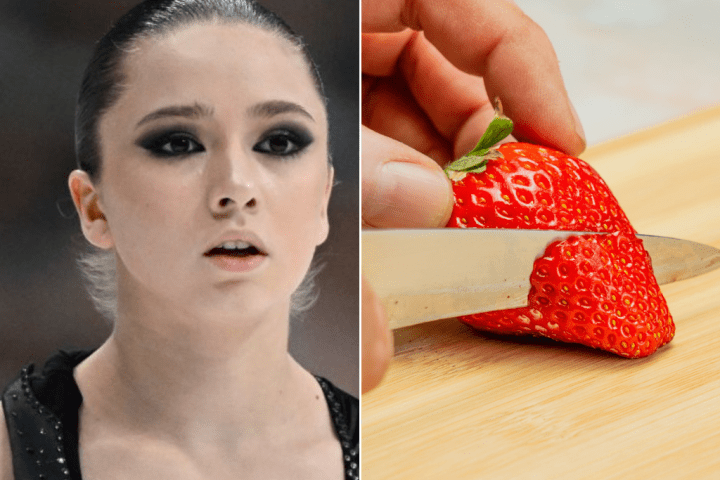
Title: Russian Skater’s Failed Doping Test Allegedly Attributed to Grandfather’s Strawberry Dessert
Introduction:
In a surprising turn of events, a Russian figure skater recently failed a doping test during an international competition. The athlete, whose identity remains undisclosed due to ongoing investigations, claimed that the positive result was a result of consuming his grandfather’s homemade strawberry dessert. This unexpected twist has raised eyebrows and sparked discussions about the potential risks associated with food contamination and inadvertent doping violations.
The Skater’s Claims:
According to the skater, he had consumed a strawberry dessert prepared by his grandfather just days before the competition. Unbeknownst to him, the dessert allegedly contained a banned substance that triggered the positive doping test. The skater maintains his innocence, emphasizing that he had no knowledge of the prohibited substance’s presence in the dessert.
Food Contamination Concerns:
While it may seem implausible that a simple homemade dessert could lead to a failed doping test, food contamination has been a known issue in the world of sports. Athletes are often advised to be cautious about what they consume, as certain substances can be inadvertently introduced into their bodies through contaminated food or drinks.
Strawberries and Doping:
The specific banned substance allegedly found in the skater’s dessert has not been disclosed. However, it is worth noting that strawberries themselves are not typically associated with doping violations. The fruit is generally considered safe and nutritious, providing essential vitamins and antioxidants. Nonetheless, it is possible that the strawberries used in the dessert were contaminated during cultivation or processing, leading to unintended consequences.
Strict Liability Principle:
The World Anti-Doping Agency (WADA) follows the strict liability principle, which holds athletes responsible for any banned substances found in their bodies, regardless of how they were ingested. This principle places the burden of proof on athletes to demonstrate that they did not intentionally consume prohibited substances. While unintentional ingestion due to food contamination can be considered a valid defense, proving it can be challenging.
Food Safety Measures:
To prevent inadvertent doping violations due to food contamination, athletes are advised to take precautions when it comes to their dietary choices. This includes consuming only trusted and certified food products, avoiding homemade or unregulated supplements, and being aware of the potential risks associated with certain ingredients or dishes. Athletes are also encouraged to consult with nutritionists or sports dietitians who can provide guidance on safe and reliable food choices.
Ongoing Investigation:
The skater’s failed doping test has prompted an investigation by the relevant anti-doping authorities. The dessert in question has been sent for analysis to determine the presence of any banned substances. Additionally, the skater’s grandfather is cooperating with investigators to shed light on the dessert’s ingredients and potential sources of contamination.
Conclusion:
The case of the Russian skater’s failed doping test allegedly attributed to his grandfather’s strawberry dessert highlights the importance of food safety in the world of sports. While it remains to be seen whether the skater’s claims will be substantiated, this incident serves as a reminder for athletes to exercise caution and be mindful of what they consume. As investigations continue, it is hoped that this incident will contribute to a broader discussion on preventing inadvertent doping violations through enhanced food safety measures.

